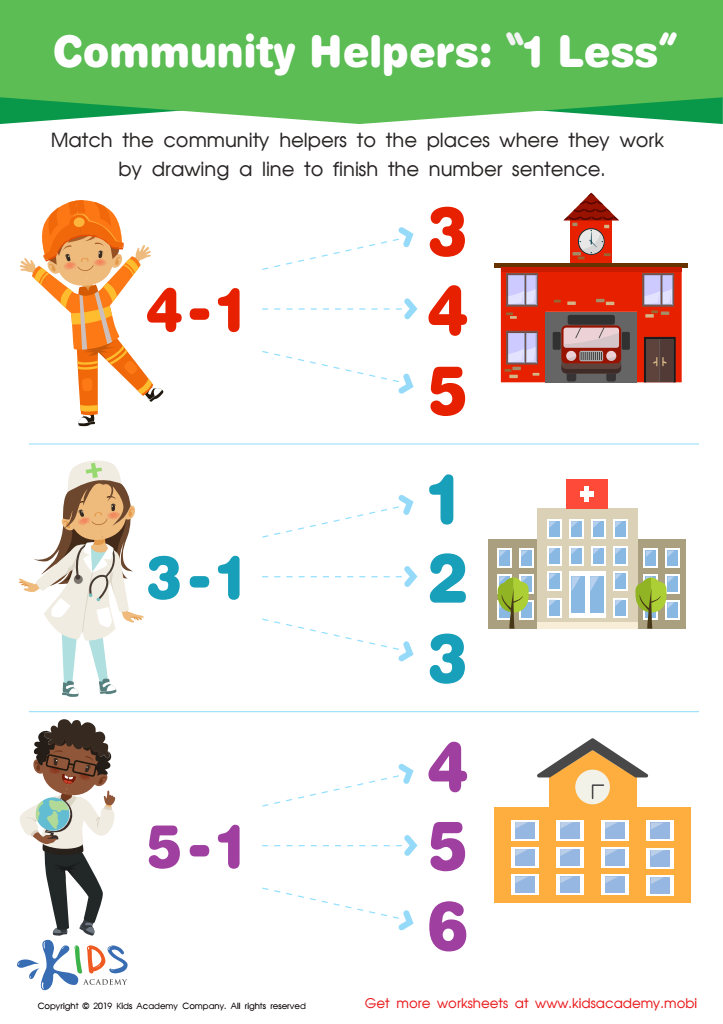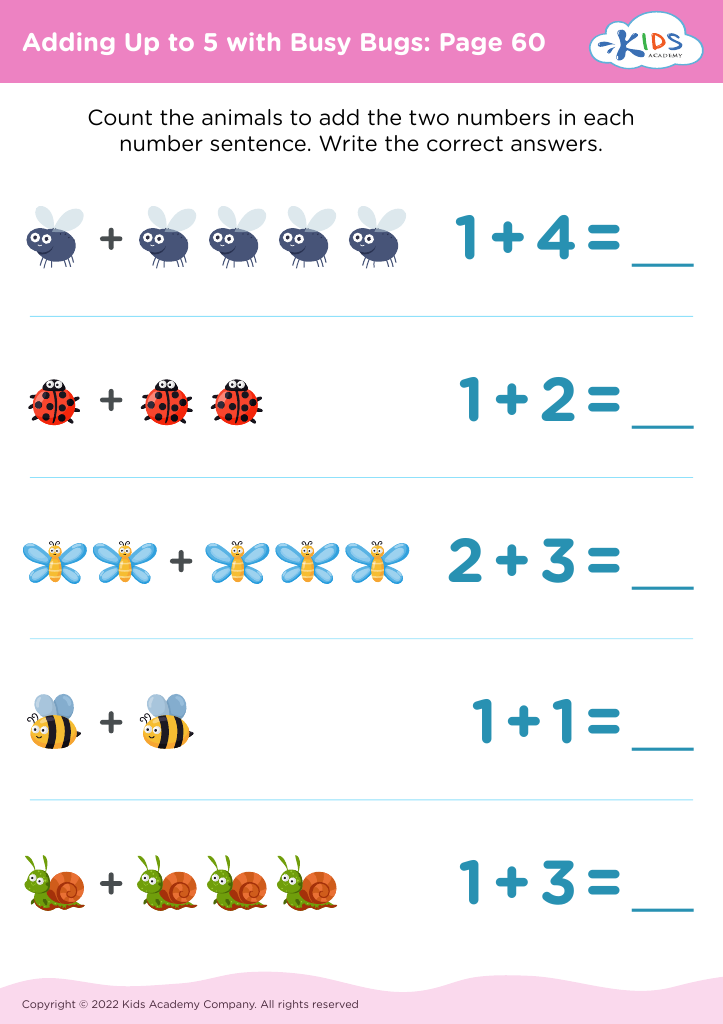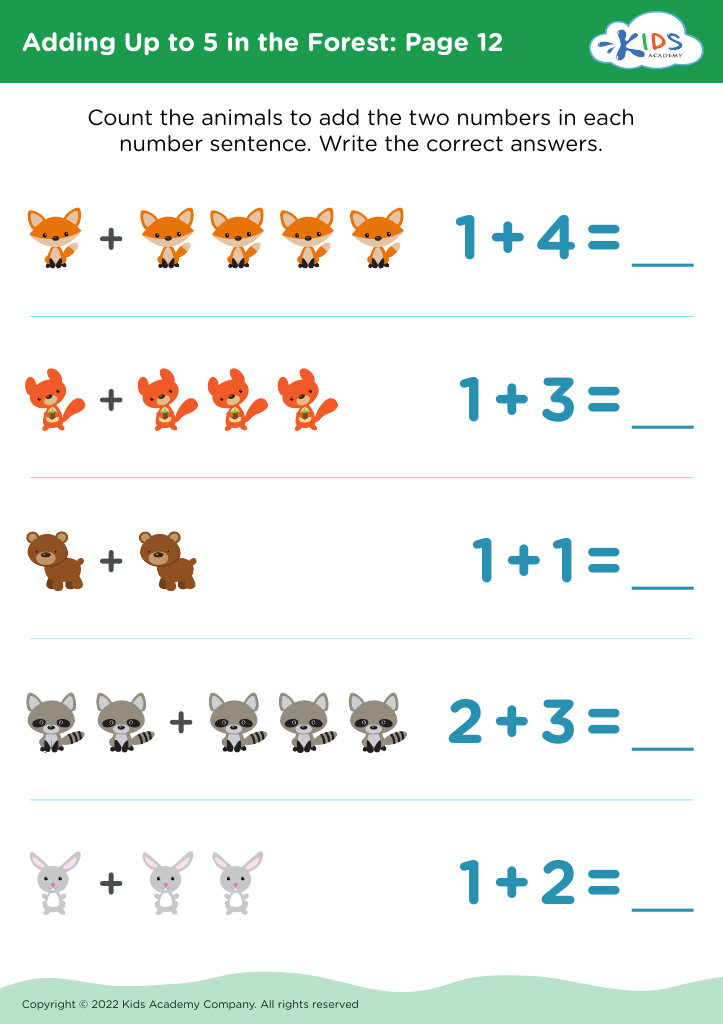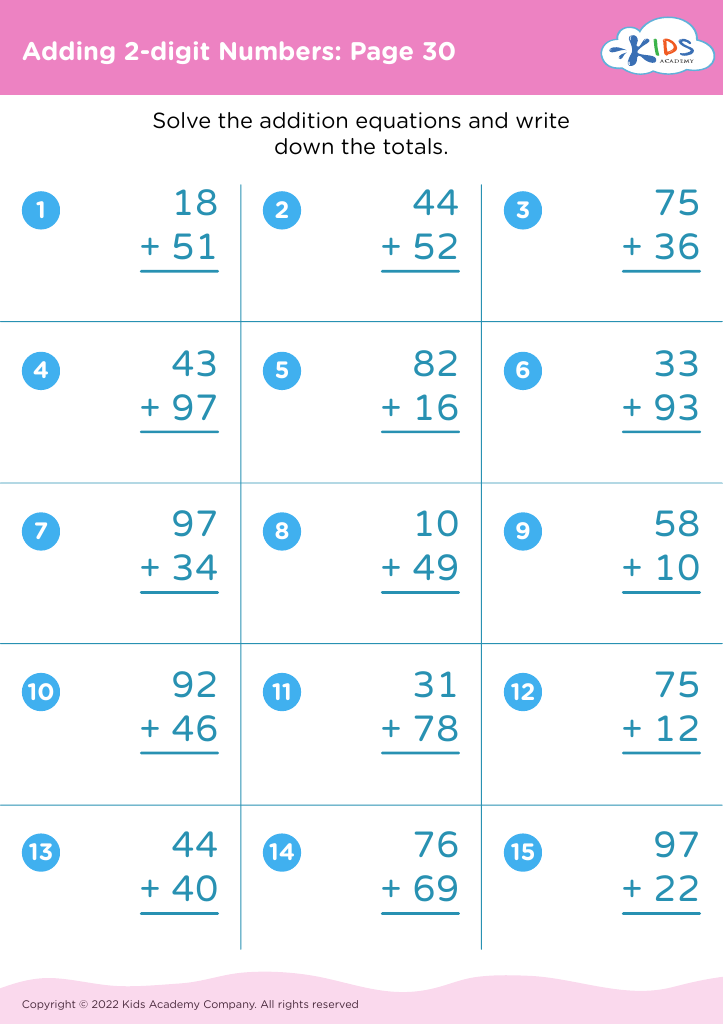Basic counting skills Addition Worksheets for Ages 4-8
6 filtered results
-
From - To
Boost your child’s math confidence with our "Basic Counting Skills Addition Worksheets for Ages 4-8". Engaging and educational, these worksheets are perfect for young learners starting their math journey. They focus on fundamental counting and addition skills, helping kids to understand and practice essential math concepts. Designed to be fun and interactive, each worksheet features colorful illustrations and simple exercises that make learning enjoyable. Ideal for both parents and teachers, our worksheets are a valuable resource for building strong mathematical foundations. Equip your child with the tools they need to succeed in math with our expertly crafted addition worksheets.


Community Helpers: 1 less Worksheet
Basic counting and addition skills are foundational for children aged 4-8 because they set the stage for more advanced mathematical understanding and everyday life skills. First and foremost, these skills are essential for developing numerical literacy. When children grasp counting and basic addition, they begin to understand larger numbers and mathematical concepts, such as place value and number relationships, which guide future learning.
Moreover, early arithmetic skills are closely linked to cognitive development. Activities that involve counting and adding enhance skills such as problem-solving, logical thinking, and memory. For example, when children count objects or solve simple addition problems, they learn to observe patterns and sequences, building critical thinking processes.
In practical terms, mastering basic counting and addition enriches life experiences. Simple tasks like sharing toys, dividing treats, or understanding time become easier, making children more independent and confident. Additionally, early success with math fosters a positive attitude towards the subject, reducing anxiety and paving the way for future academic achievement.
Finally, teachers and parents who emphasize these skills help students meet educational standards and ease transitions into formal schooling. Strong foundational math skills established early lead to better performance in higher grades, as children use these core principles to tackle more complex problems.



 Assign to My Students
Assign to My Students























